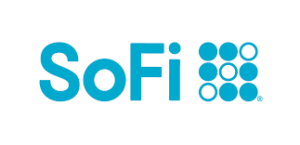The post Health Insurance Costs by Sarah Horvath appeared first on Benzinga. Visit Benzinga to get more great content like this.
If you’re living without health insurance, you could be putting your family and your finances at risk. Now is the perfect time to learn how to buy health insurance with our quick and easy market guide.
Table of contents [Show]
Health Insurance Costs
Health insurance is not a one-size-fits-all plan. Each person will pay a different monthly premium depending on the carrier, which plan is chosen and how many people are insured under one plan. According to Kaiser Permanente, the average health insurance premium per month on the marketplace is around $450 for an individual plan.
Health Insurance Open Enrollment
If you don’t have health insurance through your employer, school, Medicare or parents’ plan, you can buy health insurance through the ACA Marketplace during a period called Open Enrollment. Open Enrollment for plans beginning in the next year usually go into effect in November and end in December.
Have you recently lost coverage? You might qualify for a Special Enrollment period with access to the Marketplace outside of standard Open Enrollment. Losing your job, having a child or removal from your parents’ plan after turning 26 are just a few of the qualifying events.
Who Needs Health Insurance?
Most health insurance in the United States is issued by private insurance companies. Thanks to the ACA, every health insurance company that sells long term insurance options must cover the 10 essential benefits. Essential benefits include things like emergency room visits, surgeries, hospitalization and mental health treatment. Beyond these essential benefits, the insurance company may choose what it would like to cover. For example, some providers include dental and vision coverage, while others don’t.
It’s important to remember not every health insurance provider is authorized to issue plans in every state. Before you choose the best health insurance plan for you and your family, research your options by getting a quote through our online insurance estimation tool. Just enter your ZIP code and learn about plans available in your area.
Where to Buy Affordable Health Insurance
Again, the type of coverage you need will dictate where you’ll health purchase health insurance coverage.
For long term insurance plans, you can go through the ACA Marketplace. To shop the Marketplace, visit Healthcare.gov and create a profile. During Open Enrollment, you’ll be directed to the federal Marketplace or your state’s Marketplace. If it’s not Open Enrollment, Healthcare.gov’s screening tool will determine if you qualify for a Special Enrollment Period.
For short term plans, purchase your insurance directly through a private company. Remember, short term plans aren’t available in every state — shop early to ensure coverage or consider enrolling in Medicare or Medicaid if you cannot find another health insurance option.
1. Blue Cross Blue Shield
Blue Cross Blue Shield provides health insurance plans in most parts of the country. Most BCBS plans include PPO-level coverage, so you can choose your own provider.
Plan options allow you to balance upfront costs and the costs when you receive care. For example, you can lower your premium by choosing a higher deductible — the amount you pay for healthcare costs before your insurance starts paying. From comprehensive plan choices to nationwide availability, Blue Cross Blue Shield is our top choice for health insurance in the U.S.
Blue Cross Blue Shield is an established health insurance company that can offer you a number of coverages. Its provider network is expansive, which means you can likely find a doctor who accepts insurance near you. There are no annual maximum limits on any level of BCBS’s health insurance policies and its reviews are mostly favorable all across the country.
- Comprehensive coverage options
- Exclusive discounts and partnerships
- Coverage in all 50 states and outside the country
- Covers both generic and brand-name drugs
- Wide network of doctors, hospitals and specialists
- Plans offered through regional companies, meaning you must look to your regional company for specific policies
- Main customer service helpline may be difficult to reach
2. Kaiser Permanente
Kaiser Permanente doesn’t offer plans throughout the country, but if you live within a service area, its low-cost plans are worth a look. Kaiser Permanente operates as both a care provider and an insurance company.
The insurer cuts premiums and care costs by removing the middleman. If you’re looking for the most affordable health insurance, you’ll typically find the cheapest plans from Kaiser Permanente.
Kaiser Permanente is a not-for-profit health plan. Kaiser Permanente offers both health insurance and health care, which has resulted in excellent reviews from customers and rating organizations. Kaiser Permanente does have limited service areas, and you typically need to stay in-network for services unless you’re experiencing an emergency.
- People in Kaiser Permanente service areas
- People who don’t mind managed care
- People who like to manage their care online
- Many services available in one location
- Ability to make appointments online or using an app
- Good customer service
- Limited service area
- Need to stay in the Kaiser Permanente network for most services
3. UnitedHealthcare
If you’re looking for a one-stop-shop for all of your health insurance needs, consider UnitedHealthcare.
Even the most comprehensive plans don’t cover everything, but you can quickly add dental, vision, hearing and even life insurance coverage to your UnitedHealthcare plan in most states.
Like Blue Cross Blue Shield, UnitedHealthcare is also available in most parts of the country.
United Healthcare is a solid option for anybody looking for individual healthcare, short term health plans or indemnity plans. UHC also offers dental, vision and accident coverage plans.
- Wide range of plan and pricing options
- Transparent pricing
- ACA and non ACA plans available
- Not all plans ACA-compliant
4. Cigna
Communicating with your insurer can be a major hassle, but Cigna’s customer service team is available by phone 24/7.
The company also offers a user-friendly mobile app to view your policy details and check of the status of a claim.
Like UnitedHealthcare, Cigna also provides dental and vision plans in many states. You can add on coverage through the app or as a standalone policy to complement your outside health insurance plan.
Cigna provides end-to-end assistance and provides plenty of member benefits at no extra cost. Get comprehensive health coverage and search for other types of plans with Cigna.
- Easy access to benefits
- Home delivery for prescriptions
- Health management mobile apps
- Easy ID card replacement
- Potentially high deductibles
5. Everest
Short term health insurance plans are a special type of affordable insurance to bridge the gap during a short lapse in insurance coverage. Short term plans are very cheap and don’t provide the same level of coverage as long term options.
Be sure to get a quote from Everest. Everest’s short term options had some of the lowest deductibles and most reasonable coinsurance percentages. Everest even has options for children-only coverage in select states.
A reinsurance and insurance company available worldwide, Everest provides short term health insurance for anyone between regular coverage. Their short term medical coverage includes routine and emergency care, prescription coverage and flexible terms and waiting periods.
- Anybody who missed the ACA enrollment deadline
- People between jobs
- Ineligible or can’t afford COBRA
- Young people not on parental health insurance
- Affordable plans
- Temporary coverage available
- Customizable plan features
- No mobile app
When to Buy Health Insurance
Knowing when to purchase health insurance coincides with the type of coverage you need. If you’re in the market for a long-term plan, you’ll typically need to wait for Open Enrollment to begin. For plans beginning in 2021, you can start shopping on the Marketplace beginning on November 1, 2020. Open Enrollment dates change annually.
If you need a new health insurance plan outside of Open Enrollment, see if you qualify for a Special Enrollment Period. Again, a Special Enrollment Period allows you to browse and purchase long term insurance plans outside of the standard Open Enrollment periods. Events that might qualify you for a Special Enrollment period include:
- Losing your employer-sponsored health insurance
- Turning 26 and losing coverage under your parent’s plan
- Being released from a federal or state penal institution
- Adopting or having a child
- Gaining citizenship
- Getting a divorce or becoming a widow or widower
If you aren’t sure if you qualify for a Special Enrollment Period, you can use Healthcare.gov’s screening tool to find out.
If you don’t qualify for a Special Enrollment Period, you might want to purchase a short-term health insurance plan. Short-term insurance plans are very affordable — you can find coverage from just $45 a month in most states. However, these plans don’t need to provide coverage for the essential benefits laid out in the ACA. For example, research from the Kaiser Permanente Foundation found that:
- 43% of short-term plans don’t cover mental health solutions
- 63% don’t cover substance abuse treatments
- 71% don’t cover outpatient prescription drugs
Short term plan providers are also free to engage in practices now illegal under the ACA. For example, a short term plan provider may put a lifetime cap on the pay out for your healthcare or deny you coverage for a preexisting condition.
Short term plans also aren’t available in every state. Understand exactly what a plan offers before you purchase and only depend on a short term plan until you can enroll in long term coverage.
How to Buy Health Insurance
You don’t have to contact each company individually to get a quote. Now that you understand how to get health insurance, you know comparing options doesn’t need to be complicated. You can compare health insurance plans here.
The Cost of Going Without Insurance
At first glance, health insurance coverage might seem to be too expensive. However, the truth is that an accident can happen at any time — and the costs of deductibles and premiums pale in comparison to medical care without any type of coverage. Now is the perfect time to learn more about insurance options in your area. Take steps to get covered. Your body — and your wallet — will thank you.
Frequently Asked Questions
Will I be penalized for having no health insurance?
SInce 2019 there is no federal mandate or penalty for individuals who don’t carry health insurance.
Do I lose my parent’s health insurance the day I turn 26?
Sometimes, yes. Typically, your coverage under a parent’s policy ends when you turn 26. But some states or providers may have different guidelines, so double check there before you buy your own coverage.
The post Health Insurance Costs by Sarah Horvath appeared first on Benzinga. Visit Benzinga to get more great content like this.
- '
- "
- 2019
- 2020
- 2021
- About
- access
- According
- across
- All
- amount
- annual
- Annually
- Another
- app
- Application
- AREA
- around
- availability
- available
- average
- Beginning
- benefits
- BEST
- body
- border
- BRIDGE
- buy
- care
- change
- child
- choices
- code
- Companies
- company
- Complement
- condition
- content
- contents
- Costs
- could
- country
- Customer Service
- Customers
- Dates
- day
- delivery
- different
- Display
- Doctor
- Doctors
- Doesn’t
- double
- Early
- effect
- ends
- essential
- established
- Event
- events
- everything
- example
- excellent
- family
- FAQ
- Federal
- Finances
- First
- found
- Foundation
- Free
- gap
- getting
- Glance
- Global
- going
- great
- Group
- guide
- guidelines
- having
- Health
- Health Care
- health insurance
- healthcare
- here
- High
- hospitals
- How
- How To
- HTTPS
- Illegal
- image
- important
- include
- individual
- insurance
- issue
- IT
- Job
- lead
- LEARN
- Level
- LG
- lifetime
- Limited
- Long
- looking
- major
- management
- Market
- marketplace
- meaning
- medical
- medical care
- Medicare
- Mental health
- mind
- Mobile
- Mobile app
- most
- Near
- network
- offer
- Offers
- online
- open
- Option
- Options
- organizations
- Other
- partner
- Pay
- People
- periods
- Plenty
- policies
- policy
- Premium
- prescription
- pricing
- private
- Product
- Profile
- provide
- provides
- purchase
- quickly
- range
- rating
- reasonable
- receive
- regular
- research
- Reviews
- Risk
- School
- Search
- service
- Services
- Shopping
- Short
- So
- Sponsored
- start
- started
- starts
- State
- States
- Status
- stay
- substance
- team
- temporary
- Through
- throughout
- time
- top
- treatment
- understand
- United
- United States
- usually
- View
- vision
- wait
- Wallet
- What
- WHO
- within
- without
- worldwide
- worth
- year

















